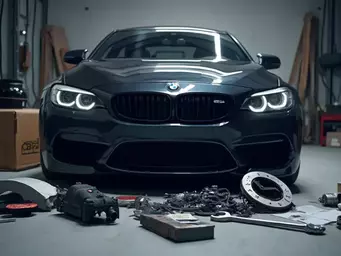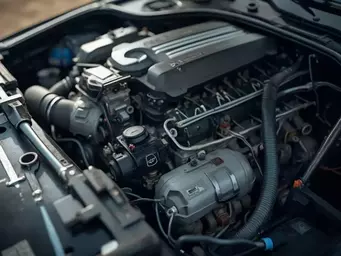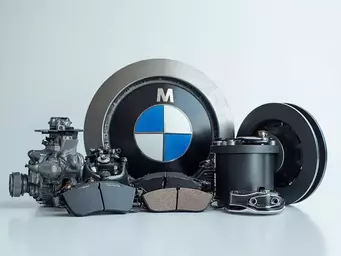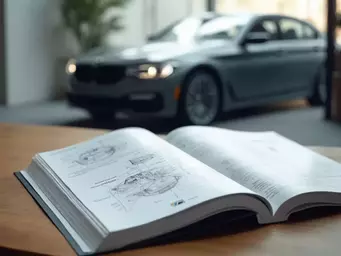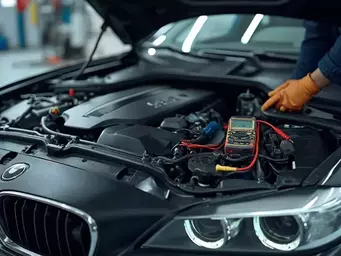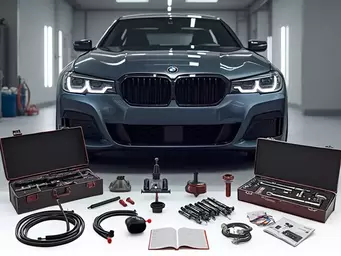Installing BMW Replacement Parts Guide

Choosing the right parts for your BMW can feel overwhelming, but understanding your options empowers you to make informed decisions. Did you know that many BMW owners face confusion between OEM and aftermarket parts? Let's clarify the differences and help you navigate your choices confidently.
What You Will Learn
- The difference between OEM (Original Equipment Manufacturer) and aftermarket parts, including their benefits and drawbacks.
- How to utilize your BMW's VIN for accurate parts identification to ensure compatibility with your specific model.
- Why selecting high-quality components is crucial for your vehicle’s performance and longevity, preventing costly repairs down the road.
- Insights into the specific replacement needs of different BMW models, such as the 3 Series and 5 Series, to source the right parts effectively.
- The importance of researching aftermarket brands, as some may offer excellent quality at a more affordable price compared to OEM parts.
BMW Parts Comparison: OEM vs. Aftermarket & Model-Specific Needs
This visual breaks down the key differences between OEM and aftermarket BMW parts, along with common part requirements for specific BMW models.
OEM Parts: Original Equipment Manufacturer
- ✓ Perfect fit & high quality
- ✓ Often comes with a warranty
- ✗ Higher price tag
- ✓ Maintains vehicle warranty
Aftermarket Parts: Independent Manufacturers
- ✓ More affordable options
- ✗ Quality can vary significantly
- ✗ May not maintain warranty
- ✓ Research is key for best quality
Model-Specific BMW Part Needs
Understanding BMW Replacement Parts: What You Need to Know
When it comes to maintaining your BMW, understanding the various types of replacement parts available is essential. Many BMW owners often find themselves confused between OEM and aftermarket parts. Don't worry! I'm here to break it all down for you and help you navigate your options with confidence.
OEM (Original Equipment Manufacturer) parts are made by the same company that produced the original components for your vehicle. They guarantee a perfect fit and reliable performance, but they do come with a higher price tag. In contrast, aftermarket parts are produced by different manufacturers and can vary significantly in quality. Some may be great alternatives, while others might not meet your expectations. So, how do you decide?
Overview of BMW OEM and Aftermarket Parts
Let's dive a bit deeper into the specifics of these parts. Here’s a quick overview:
- OEM Parts: Perfect fit, high quality, and often come with a warranty.
- Aftermarket Parts: More affordable options, but quality can vary; some brands are fantastic, while others might cut corners.
It’s important to research whichever route you choose. For instance, some aftermarket brands have a solid reputation among BMW enthusiasts. Be sure to check user reviews to find the best quality parts that fit your needs!
Why Choosing the Right Parts Matters for Your BMW
Selecting the right parts is crucial for your vehicle’s performance and longevity. Using high-quality components can prevent future breakdowns and costly repairs. If you opt for subpar parts, you might find yourself facing problems down the line, which can be frustrating and expensive. Have you experienced any issues with inferior parts? You’re not alone!
Additionally, using OEM parts can help maintain your vehicle’s warranty, which is particularly important for newer models. For detailed guidance on BMW's quality standards, you can refer to BMW's internal quality documents. Remember, the right parts contribute not only to your car's effectiveness but also to your driving experience. Let's ensure you make informed decisions!
Exploring Different BMW Models and Their Unique Replacement Needs
Each BMW model has its own unique set of needs when it comes to replacement parts. For instance, a 3 Series might require different brake pads than a 5 Series. It’s vital to know your specific model to ensure you’re sourcing the correct parts.
- BMW 3 Series: Commonly requires brake pads and filters.
- BMW 5 Series: Focus on air suspension components.
- BMW X5: Often needs reliable wheel bearings and engine mounts.
Understanding these nuances helps you in sourcing the right parts. If you have questions about your specific model, feel free to reach out! I love discussing BMW nuances and helping fellow enthusiasts find what they need.
Pro Tip
When sourcing replacement parts for your BMW, always prioritize quality over cost. Consider sticking to reputable aftermarket brands that have positive reviews from fellow BMW enthusiasts. This can offer you the best balance of affordability and performance without compromising your vehicle's integrity!
Sourcing Quality BMW Replacement Parts for Your Project
Sourcing the right parts for your BMW can be a daunting task, especially if you're new to working on your vehicle. However, with the right approach, you can easily find quality replacement parts that fit your needs. Having spent years in the automotive industry, I’ve seen how crucial it is to get this step right. Here’s what I recommend!
How to Use Your VIN for Accurate Parts Identification
Your BMW's Vehicle Identification Number (VIN) is like a fingerprint for your car. It’s unique to your vehicle and contains vital information about its specifications. Using your VIN can ensure you get the exact parts needed for your specific model.
- Locate your VIN, usually found on the driver's side dashboard or door jamb.
- Use online tools or dealership websites to decode your VIN.
- Cross-reference the decoded information with parts catalogs to find compatible components.
By following these steps, you can avoid common pitfalls in parts ordering. This ensures that you’re sourcing the right items, which ultimately saves you time and money! For official BMW information on vehicle identification, visit i-CAR's OEM information page for BMW.
Comparing Genuine BMW Parts vs. Aftermarket Options
When it comes to replacement parts, choosing between genuine BMW parts and aftermarket options can be tricky. Each has its pros and cons. Genuine parts ensure a perfect fit and maintain your vehicle’s warranty, while quality aftermarket parts can save you money without sacrificing performance.
- Genuine BMW Parts: Made to OEM specifications, ensuring compatibility and performance.
- Aftermarket Parts: Often more affordable, but quality can vary greatly. Research is key!
Ultimately, the choice depends on your needs and budget. For those looking for long-term reliability and adherence to original specifications, I often suggest sticking with genuine parts whenever possible. Further technical documents, such as the BMW EBA document for specific installations, can provide valuable insights for those considering genuine components.
Utilizing Online Tutorials and Resources for Parts Sourcing
In our digital age, finding parts and installation guides has never been easier. Websites like BMW Spare Parts Guide provide a wealth of information, including tutorials and troubleshooting advice. When searching for parts, consider these strategies:
- Explore forums and communities dedicated to BMW enthusiasts.
- Watch tutorial videos on platforms like YouTube for visual guidance.
- Read product reviews and recommendations from other BMW owners.
Leveraging these resources can enhance your understanding and confidence in sourcing the right parts. Remember, you’re not alone on this journey; the community is here to help!
Frequently Asked Questions (FAQs)
What is the main difference between OEM and aftermarket BMW parts?
Why is using my BMW's VIN important when buying replacement parts?
Will using aftermarket parts void my BMW's warranty?
How can I ensure I choose high-quality aftermarket parts?
What are some common replacement needs for specific BMW models?
Recap of Key Points
Here is a quick recap of the important points discussed in the article:
- OEM parts guarantee a perfect fit and reliable performance but are generally more expensive.
- Aftermarket parts can be more affordable but vary in quality; research and reviews are essential.
- Using high-quality components can prevent future breakdowns and costly repairs.
- Understanding your specific BMW model's needs is crucial for sourcing the correct replacement parts.
- Utilizing your Vehicle Identification Number (VIN) helps ensure accurate parts identification.
- Online resources like forums and tutorial videos can greatly assist in parts sourcing and installation.

